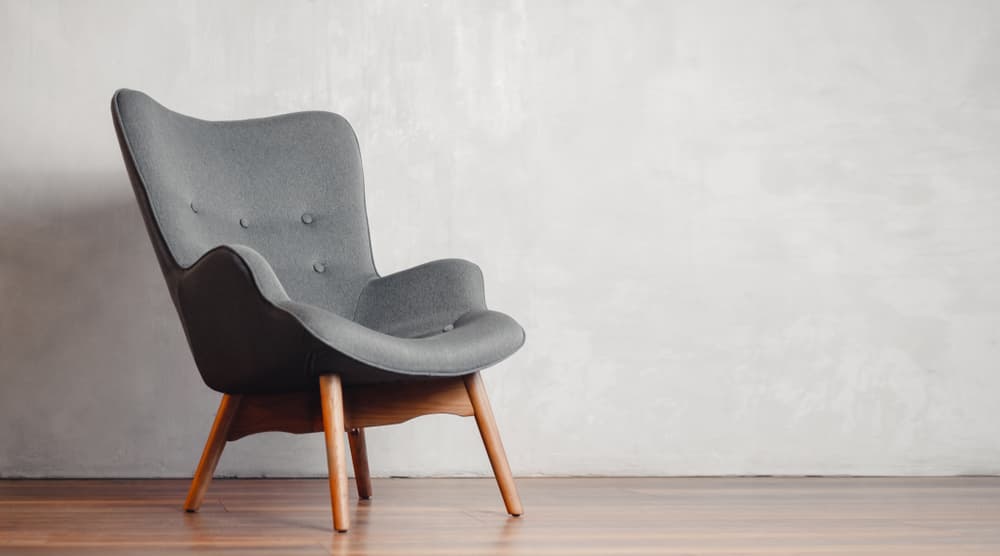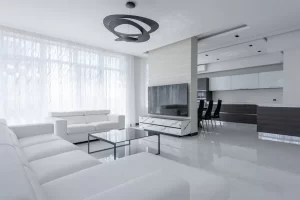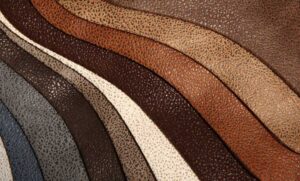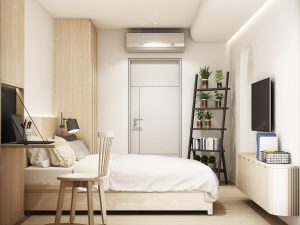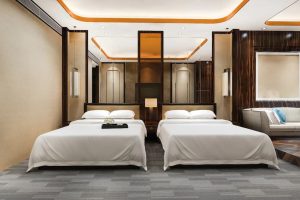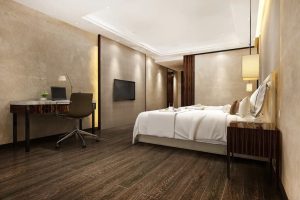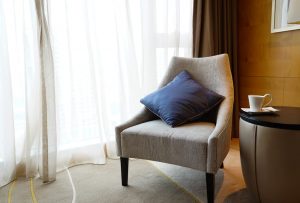When furnishing a commercial space, following the right guides to contract furniture ensures that businesses invest in high-quality, durable, and stylish furniture. Contract furniture differs from residential furniture in that it is designed for heavy usage, long-term durability, and compliance with industry regulations.
For hotels, restaurants, offices, and public spaces, selecting contract furniture involves considering functionality, material quality, and design consistency. Whether you’re sourcing furniture from contract furniture suppliers or customizing pieces for a hospitality project, understanding the key contract furniture procurement guidelines is crucial.
This article provides a comprehensive contract furniture buying guide, helping business owners and interior designers make informed decisions while ensuring that their investments stand the test of time.
Table of Contents
Toggle- What Is Contract Furniture?
- Essential Guides to Contract Furniture Selection
- 2. Choosing the Right Materials for Contract Furniture
- 3. Key Considerations for Contract Furniture Buying
- 4. Custom Contract Furniture Solutions for Unique Spaces
- 5. Contract Furniture Design Trends for 2024
- 6. How to Identify the Best Contract Furniture Manufacturers
- Final Thoughts on Guides to Contract Furniture
- The Advantages of Custom Luxury Hotel Furniture
- The Importance of Custom Hotel Furniture in Enhancing Guest Experience
- The Ultimate Guide to Finding Top Hotel Furniture Suppliers in Turkey
- Importance of High Quality Furniture in Hotels
- The Impact of Furniture Design on Hotel Guest Experience
- High Quality Furniture in Hotels: Essential for Guests
- The Role of Furniture in Defining Hotel Aesthetics
- The Evolution of Hotel Furniture Design Over the Years
- How to Choose the Right Upholstery for Hotel Furniture
- The Impact of Furniture Design on Guest Experience in Hotels
- Hotel Furniture and Design: Enhancing the Guest Experience
- Premium Hotel Furniture in Turkey: Elevate Your Hotel’s Interior Design
- How Do Hotels Get Furniture in the Rooms | Hotel Solutions
- Hotel Furniture Concept | Perfect Products for Your Hotel
- Top 5 Benefits of Turkish Made Hotel Furniture
- What makes a good faux leather?
- Furnishing an Apartment: 6 Tips for Choosing the Best Furniture
- Types Of Hotel Furniture You Need
- Why Turkish Made Hotel Furniture is the Best Choice for Your Business
- What is fixed furniture?
- Maximizing Your Hotels ROI with High-Quality Furniture Solutions
- Benefits of Custom Made Furniture
- Hotel Furniture Buying Guide
- Where Do I Buy Hotel Furniture in Turkey?
- How to Make a Hotel Room Feel Like Home
- How Often Do Hotels Change Their Interiors?
- A Good Hotel Furniture Manufacturer
- 7 Signs Your that Hotel Needs Renovation
- What Factors Will Affect Hotel Furniture Prices?
- Should I Buy Laminate or Veneer Furniture?
- MDF Cutting Machine
- What are the Basic Furniture Required to Set Up a Hotel?
- What is Crib 5?
- Four Ways to Maintain Hotel Room Storage
- Characteristics of a Custom Hotel Furniture
- Popular Materials for Luxury Hotel Furniture Manufacture
- The Four Characteristics of a Hotel Furniture Design
- 4 Key Considerations for Hotel Furniture
- Hospitality Design Mistakes That Are Common
- Hotel Furniture Quality Control Checklist
- Things Your Hotel Furniture Manufacturer Should Provide
- Why we use 3D Renderings in Furniture Design
- Advantages of Custom Hotel Furnitures
- Important Questions to Ask a Potential Hotel Furniture Supplier
- Things to Consider When Choosing a Hotel Furniture Manufacturer
- Wood Veneers and Laminate Casegoods
- Wooden Furniture Care
- What Types Of Wood Are The Best For Your Luxury Sofa?
- Hotel Furniture Cushion Upholstery Care
- Leather Furniture Care; Maintaining Your Hotel Furniture
- Ten Tips for Hotel Lobby Design
- Starland Hotel Cameroon
- Hotel Furniture Turkey
- The Best Hotel Furniture Suppliers
- Hotel Furniture Manufacturers in Turkey
- Four Mistakes While Buying a Restaurant Furniture in Turkey 2021
- Selecting Booth and Sofa Seating Made in Turkey
- 10 Restaurant And Cafe Furniture Ideas From Turkey
- Five Most important Materials in Hotel Furniture Industry
- Hotel Renovations: Luxury Hospitality Furnishings made in Turkey
- How to Maintain Hotel Furniture for 10+ Years
- Commercial VS Residential Furniture Made in Turkey
- Hotel Furniture Manufacturing Industry in Turkey
What Is Contract Furniture?
Contract furniture refers to commercial-grade furniture designed for hotels, offices, restaurants, and public spaces. Unlike residential furniture, it is built to withstand heavy traffic, meet contract furniture quality standards, and adhere to fire and safety regulations.
When selecting contract furniture, buyers must consider:
Durability – Can withstand high-traffic environments.
Customizability – Allows for bespoke contract furniture solutions.
Regulations – Meets industry safety and quality standards.
Sustainability – Uses eco-friendly and long-lasting materials.
Understanding these factors will help businesses make better purchasing decisions.
Essential Guides to Contract Furniture Selection
1. Understanding Contract Furniture Procurement
Selecting the right contract furniture suppliers requires a thorough understanding of the procurement process. Businesses must assess whether the supplier can provide:
- Wholesale contract furniture at competitive prices.
- Customization options to meet specific design themes.
- Quality assurance and compliance certifications.
Best contract furniture manufacturers offer a balance between cost, quality, and aesthetics, ensuring that hospitality contract furniture is both functional and visually appealing.
2. Choosing the Right Materials for Contract Furniture
When following guides to contract furniture, material selection plays a crucial role in ensuring longevity and ease of maintenance. The most commonly used materials include:
Solid Wood & Veneers – Provides timeless elegance and structural stability.
Metal & Stainless Steel – Ideal for modern commercial furniture selection.
Upholstered Fabrics & Leather – Ensures comfort and durability.
Laminates & High-Pressure Surfaces – Used for scratch-resistant commercial furniture.
High-quality materials contribute to cost efficiency, reducing the need for frequent replacements.
3. Key Considerations for Contract Furniture Buying
Businesses looking for hotel contract furniture or restaurant seating solutions must consider:
Design compatibility – Does it match the interior aesthetics?
Functionality – Is the furniture ergonomic and space-efficient?
Warranty & After-Sales Service – Does the supplier offer repairs or replacements?
By addressing these aspects, businesses can make smart investment choices when purchasing commercial interior furnishings.
4. Custom Contract Furniture Solutions for Unique Spaces
Many businesses require custom contract furniture solutions to meet specific branding and functional needs. Customization allows for:
- Brand consistency in hotels, offices, and retail stores.
- Bespoke dimensions tailored to space constraints.
- Enhanced durability based on usage patterns.
Best contract furniture manufacturers offer flexible customization to ensure a perfect fit for commercial spaces.
5. Contract Furniture Design Trends for 2024
Keeping up with contract furniture design trends ensures that businesses stay ahead in creating modern, inviting spaces. The latest trends include:
Sustainable & Eco-Friendly Designs – Use of recycled materials and low-emission finishes.
Multifunctional Furniture – Adaptable designs that serve multiple purposes.
Biophilic Elements – Incorporation of natural textures and materials.
Businesses that integrate these trends into their contract furniture procurement benefit from improved guest experiences and long-term cost savings.
6. How to Identify the Best Contract Furniture Manufacturers
Finding a reliable contract furniture supplier requires research and thorough evaluation. Some of the factors to assess include:
Industry experience – Look for trusted suppliers with a strong portfolio.
Product testing & certifications – Ensure compliance with contract furniture quality standards.
Delivery & logistics – Check lead times for bulk contract furniture orders.
Working with a wholesale contract furniture provider that prioritizes quality and service ensures a smooth procurement process.
Final Thoughts on Guides to Contract Furniture
Selecting contract furniture involves careful planning, material selection, and supplier evaluation. Following the right guides to contract furniture ensures that businesses invest in durable, aesthetically pleasing, and functional pieces that align with their brand identity.
By considering custom contract furniture solutions, hospitality contract furniture trends, and procurement best practices, businesses can enhance customer satisfaction, operational efficiency, and long-term value.
The Advantages of Custom Luxury Hotel Furniture
The advantages of custom luxury hotel furniture go beyond aesthetics....
Read MoreThe Importance of Custom Hotel Furniture in Enhancing Guest Experience
A hotel’s ambiance plays a significant role in shaping a...
Read MoreThe Ultimate Guide to Finding Top Hotel Furniture Suppliers in Turkey
Introduction Designing a hotel that exudes comfort and luxury hinges...
Read MoreImportance of High Quality Furniture in Hotels
Why High Quality Furniture Matters in Hotels The importance of...
Read MoreThe Impact of Furniture Design on Hotel Guest Experience
The impact of furniture design in hotels goes beyond aesthetics—it...
Read MoreHigh Quality Furniture in Hotels: Essential for Guests
Introduction to hotel furniture quality High-quality furniture in hotels is...
Read MoreThe Role of Furniture in Defining Hotel Aesthetics
Importance of furniture in the hotel industry Furniture plays a...
Read MoreThe Evolution of Hotel Furniture Design Over the Years
Introduction to hotel furniture design Hotel furniture design has come...
Read MoreHow to Choose the Right Upholstery for Hotel Furniture
Importance of choosing the right upholstery for hotel furniture Choosing...
Read MoreThe Impact of Furniture Design on Guest Experience in Hotels
Importance of furniture design in hotels Furniture design plays a...
Read MoreHotel Furniture and Design: Enhancing the Guest Experience
The design and quality of hotel furniture play a crucial...
Read MorePremium Hotel Furniture in Turkey: Elevate Your Hotel’s Interior Design
Choosing the right hotel furniture in Turkey is crucial for...
Read MoreHow Do Hotels Get Furniture in the Rooms | Hotel Solutions
How do hotels get furniture in the rooms efficiently while...
Read MoreHotel Furniture Concept | Perfect Products for Your Hotel
What are the leading hotel furniture suppliers in Turkey? When...
Read MoreTop 5 Benefits of Turkish Made Hotel Furniture
The benefits of Turkish made hotel furniture go beyond aesthetics....
Read MoreWhat makes a good faux leather?
Faux leather has gained popularity as a cost-effective, eco-friendly alternative...
Read MoreFurnishing an Apartment: 6 Tips for Choosing the Best Furniture
Furnishing an apartment requires thoughtful planning to create a functional,...
Read MoreWhy Turkish Made Hotel Furniture is the Best Choice for Your Business
What are some of the most popular Turkish made hotel...
Read MoreWhat is fixed furniture?
What kinds of furniture are considered fixed? Fixed furniture refers...
Read MoreMaximizing Your Hotels ROI with High-Quality Furniture Solutions
Investing in High-Quality Furniture Solutions is one of the most...
Read MoreHotel Furniture Buying Guide
When setting up or refurbishing a hotel, selecting the right...
Read MoreWhere Do I Buy Hotel Furniture in Turkey?
Finding the right furniture is essential for creating an inviting...
Read MoreHow to Make a Hotel Room Feel Like Home
Staying in a hotel can often feel impersonal, especially for...
Read MoreHow Often Do Hotels Change Their Interiors?
A well-planned hotel interior design plays a vital role in...
Read MoreA Good Hotel Furniture Manufacturer
Selecting a good hotel furniture manufacturer is crucial for creating...
Read More7 Signs Your that Hotel Needs Renovation
Every successful hotel must evolve with changing guest expectations. If...
Read MoreWhat Factors Will Affect Hotel Furniture Prices?
When planning a hotel renovation or new construction, one of...
Read MoreShould I Buy Laminate or Veneer Furniture?
When selecting furniture, one of the most common debates is...
Read MoreWhat are the Basic Furniture Required to Set Up a Hotel?
Setting up a hotel requires careful planning, especially when selecting...
Read MoreFour Ways to Maintain Hotel Room Storage
Keeping hotel room storage well-maintained is crucial for guest satisfaction,...
Read MoreCharacteristics of a Custom Hotel Furniture
Characteristics of a custom hotel furniture shape the overall guest...
Read MorePopular Materials for Luxury Hotel Furniture Manufacture
he selection of popular materials for luxury hotel furniture manufacture...
Read MoreThe Four Characteristics of a Hotel Furniture Design
The characteristics of a hotel furniture design define the overall...
Read More4 Key Considerations for Hotel Furniture
Choosing the right hotel furniture involves more than just aesthetics....
Read MoreHospitality Design Mistakes That Are Common
In the hospitality industry, interior design plays a critical role...
Read MoreHotel Furniture Quality Control Checklist
In the hospitality industry, hotel furniture quality control is an...
Read MoreThings Your Hotel Furniture Manufacturer Should Provide
Generally, when purchasing furniture for repairs and modifications, you work...
Read MoreWhy we use 3D Renderings in Furniture Design
In the modern furniture industry, 3D Renderings in Furniture Design...
Read MoreAdvantages of Custom Hotel Furnitures
The advantages of custom hotel furnitures go beyond aesthetics. Hotels...
Read MoreImportant Questions to Ask a Potential Hotel Furniture Supplier
Finding a hotel furniture supplier that aligns with your quality,...
Read MoreThings to Consider When Choosing a Hotel Furniture Manufacturer
Selecting the right hotel furniture manufacturer is a crucial decision...
Read MoreWood Veneers and Laminate Casegoods
When selecting wood veneers and laminate casegoods for hotels, offices,...
Read MoreWooden Furniture Care
Wooden furniture care is essential for maintaining the durability, beauty,...
Read MoreWhat Types Of Wood Are The Best For Your Luxury Sofa?
When investing in a high-end sofa, selecting the best wood...
Read MoreHotel Furniture Cushion Upholstery Care
Ensuring hotel furniture cushion upholstery remains clean, durable, and comfortable...
Read MoreLeather Furniture Care; Maintaining Your Hotel Furniture
Proper leather furniture care is essential for maintaining the luxury,...
Read MoreThe Best Hotel Furniture Suppliers
What are the most ideal options for hotel furniture suppliers?...
Read MoreHotel Furniture Manufacturers in Turkey
Hotel furniture manufacturers in Turkey aim to meet the furniture...
Read MoreFour Mistakes While Buying a Restaurant Furniture in Turkey 2021
Have you ever spent hours fussing over the missing links...
Read MoreSelecting Booth and Sofa Seating Made in Turkey
When selecting booth and sofa seating made in Turkey, it...
Read More10 Restaurant And Cafe Furniture Ideas From Turkey
Furniture designs are one of the best ways to satisfy...
Read MoreFive Most important Materials in Hotel Furniture Industry
In the hotel Furniture manufacturing industry, several materials help the...
Read MoreHotel Renovations: Luxury Hospitality Furnishings made in Turkey
Hotel renovations are often corrective and can be for several...
Read MoreHow to Maintain Hotel Furniture for 10+ Years
Investing in hotel furniture is a long-term commitment, so knowing...
Read MoreCommercial VS Residential Furniture Made in Turkey
The global furniture market has been witnessing a steady transformation,...
Read MoreHotel Furniture Manufacturing Industry in Turkey
The hotel furniture manufacturing industry in Turkey has been gaining...
Read More

